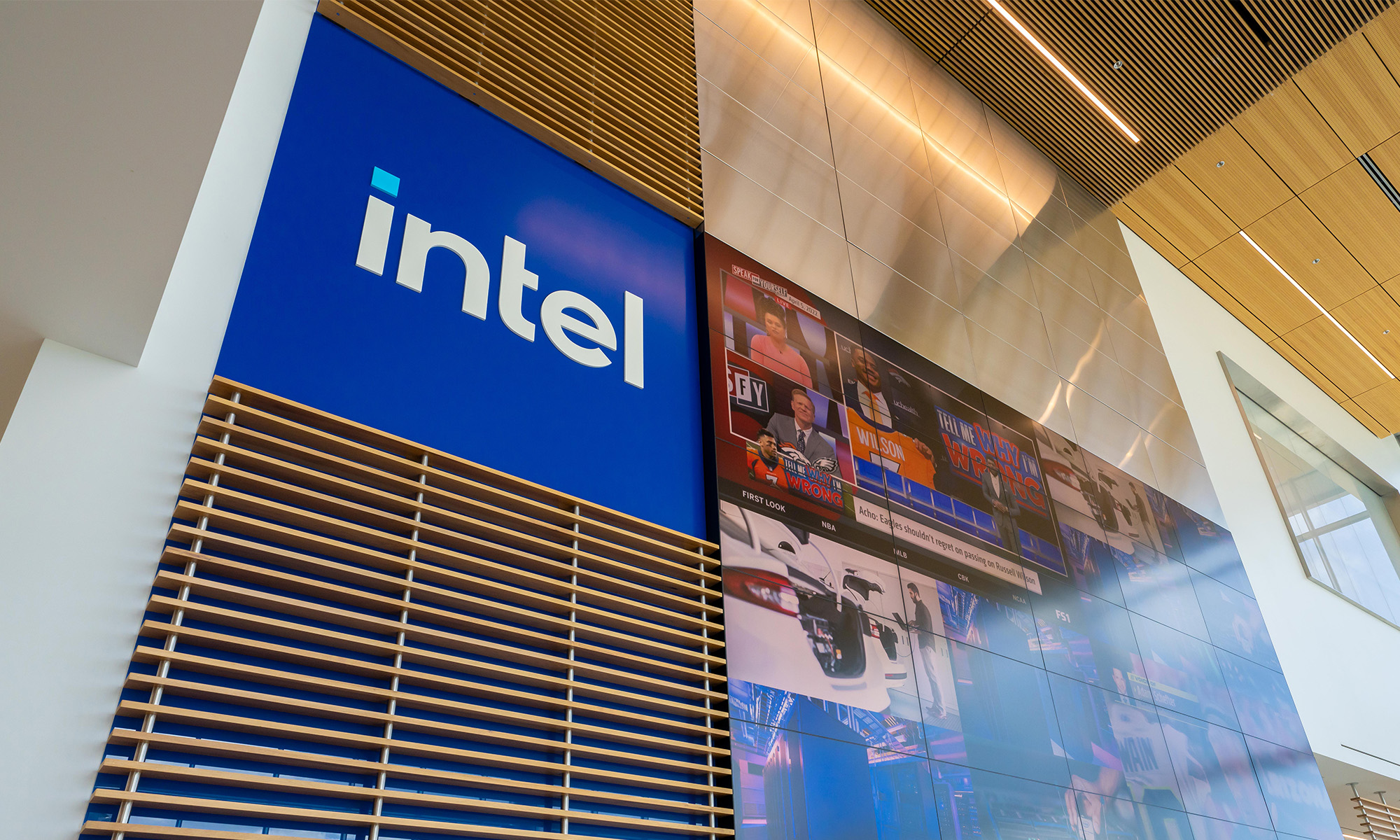According to a report from The Korea Economic Daily, smartphone maker LG Electronics is said to be partnering with Intel (INTC 3.27%) to develop a mobile applications processor. Although details on this particular chip are scarce, the chip is expected to be built on Intel's 14-nanometer manufacturing technology.
The Korea Economic Daily describes this deal as a "win-win" for the parties involved, and if it's true, I completely agree. Here's why.
Intel can finally make its way into high-profile smartphones
Although LG isn't as popular among smartphone buyers as Apple and Samsung (NASDAQOTH: SSNLF) are, it is still a fairly high-profile smartphone vendor with nearly 6% global market segment share, according to TrendForce.
LG has typically used processors from market leader Qualcomm (QCOM 1.99%) in its devices, although it has recently been testing the waters with applications processors developed in-house. The first of its applications processors, the LG NUCLUN, was not particularly impressive, however, as it delivered performance and features well below what Qualcomm's comparable offerings did.
This isn't a surprise since LG is a relative newcomer to mobile applications processor design, while Qualcomm is the industry leader.
By partnering with Intel, LG's processor development efforts could see a significant boost. For one thing, to my knowledge, LG does not have an internal cellular baseband effort, while Intel's -- though not yet up to par with Qualcomm's -- are becoming increasingly credible. A jointly designed chip would be able to combine a modem with the applications processor on the same piece of silicon, helping LG keep pace with Qualcomm's integration capabilities.
Intel's mobile efforts could also get a big boost, here. By working with a customer like LG, not only would the company have a guaranteed buyer for its chips, but Intel would have better insight into the requirements of a tier-1 smartphone vendor. This insight, in turn, could allow the company to develop a more competitive intellectual property roadmap, helping to bolster its long-term position in the smartphone chip market.
When will we see this chip?
The report says both LG and Intel had begun discussing this partnership early on in 2015, and that joint development of this product started pretty recently. If we assume it'll take about a year to get this chip into production from the start of development (it is likely not a "clean-sheet" design but perhaps a modification/enhancement of a current Intel or LG design), then expect to see this one announced by the end of 2016, and in devices announced during the first half of 2017.
What devices LG will ultimately put this jointly developed processor in remains unknown, but I would guess LG/Intel are probably developing a higher-end applications processor. After all, why would LG spend the money and engineering resources trying to build a customized chip for mid-range phones where any such performance differentiation would likely go unnoticed by customers/reviewers?
Does this mean Qualcomm is out of LG's phones?
Although having a customized chip should allow LG to lessen its dependence on Qualcomm, I doubt the former intends to completely cut the latter out. What I do suspect, though, is that LG aims to do what its rival Samsung does: Use Qualcomm chips in phones sold in some regions, and its own applications processors in phones sold in other regions.
Such a development isn't great for Qualcomm -- it seems clear LG wants to have as much leverage over Qualcomm as it can in terms of pricing -- but I believe the extent of Qualcomm's overall share loss at LG will heavily depend on how competitive LG's own parts are with Qualcomm's. If Qualcomm's chips are still far-and-away the superior choices, then the share loss to LG's own chips should be fairly minimal.
If LG can field chips that are comparable to what Qualcomm can do (this seems doubtful in the near term, even with Intel's help), then the share loss could prove material.






